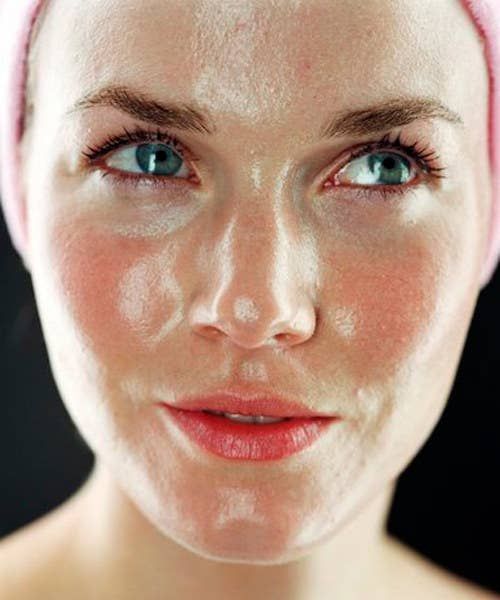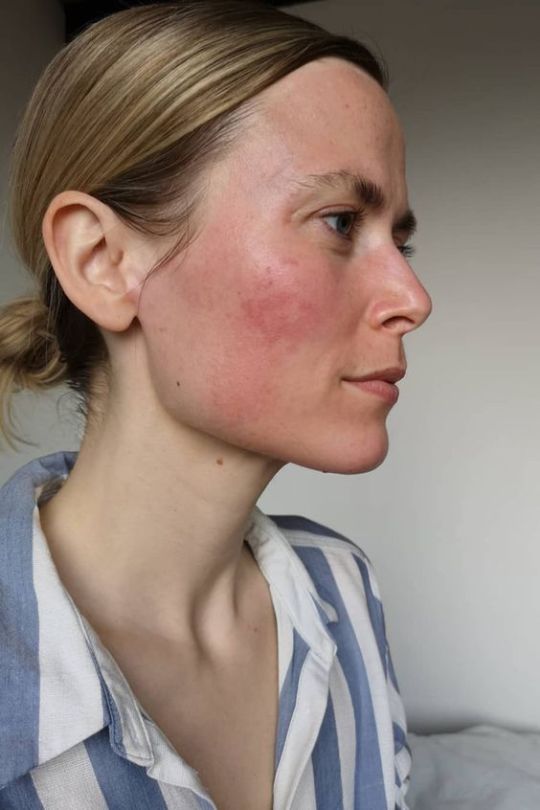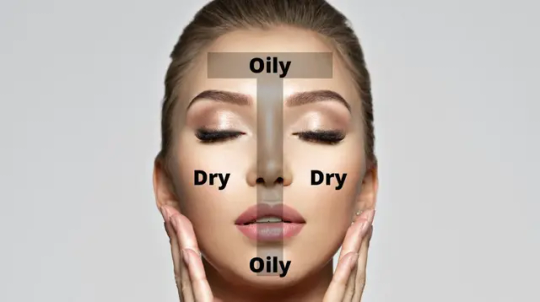Don't wanna be here? Send us removal request.
Text
Skin type refers to how your skin behaves. Type of Skin are typically classified into five main categories: dry, oily, sensitive, combination, and normal.
1. Dry Skin

Dry Skin feels tight, itchy, or rough throughout the day. You may experience flakiness, peeling, or a dull tone to your face, especially when you’re in colder temperatures. Dry skin is caused by an unproduction of sebum, aka your skin’s natural oil. Yes, some oil is actually good for your skin.
2. Oily Skin

Oily Skin has the opposite problem-it overproduces sebum, which makes your face look greasy or shiny. You may also notice other skin concerns like blackhead or enlarged pores. Every skin type experiences breakouts, but oily skin are more prone to pimples, since those enlarged pores are more easily clogged with excess sebum.
3. Sensitive Skin

Sensitive Skin can appear red or inflamed after coming into contact with stressors, including certain skincare products. Your skin may itch, tingle, or burn after using a product. If you deal with other skin conditions, like rosacea or eczema, there is a good chance your skin is sensitive.
4. Combination Skin

Combination Skin is of at least two of the previous skin types. A lot of people with combination skin have an oily T-zone on the forehead, nose, and chin but dry cheeks. Combination skin just means your skin has different characteristics on different parts of your face.
5. Normal Skin

Normal Skin is balanced. It is neither too dry nor too oily. The overall sebum and moisture content in such a skin is balanced but the T-zone on the forehead, chin and nose may be slightly oily. It is the rarest skin type.
If you’re not sure which category you fall into, there’s an easy way to find out.
Wash your face with a gentle cleanser that has no active ingredients, and then pat it dry with a towel.
Don’t apply any more skincare products. Wait about a half hour, and then see how your skin looks and feels.
If your face is super greasy then you probably have oily skin.
If just your cheeks are dry, then you may have combination skin.
If your face feels rough and tight, you have dry skin.
If your skin is irritated or red, that points to sensitivity.
#how to check my skin type#how to determine your skin type#how to find your skin type#how to identify type of skin#how to know your skin type#skincare#dry skin#oil skin#sensitive skin#combination skin#normal skin
3 notes
·
View notes